Tuesday, September 20 2016
 The first time I read Sprye’s book Heidi, I was 8 years old, and I was so into that story I could close my eyes and be on that mountain living with the grandfather. Long before the movie came out, I imagined myself climbing up the mountain every day with Peter, listening to the goats baaing and their bells jingling. I felt Peter’s angst when the little goat fell onto a ledge and he had to be saved. I was there. Living the life of Heidi even though I’d never been out of the US. Later I curled up with the Nancy Drew mysteries and I was the sleuth. I paid close attention to all the little details, and I so wanted to solve that mystery before Nancy figured it out. Reading was a ticket out of where I lived and into somewhere else. Somewhere more exciting. The first time I read Sprye’s book Heidi, I was 8 years old, and I was so into that story I could close my eyes and be on that mountain living with the grandfather. Long before the movie came out, I imagined myself climbing up the mountain every day with Peter, listening to the goats baaing and their bells jingling. I felt Peter’s angst when the little goat fell onto a ledge and he had to be saved. I was there. Living the life of Heidi even though I’d never been out of the US. Later I curled up with the Nancy Drew mysteries and I was the sleuth. I paid close attention to all the little details, and I so wanted to solve that mystery before Nancy figured it out. Reading was a ticket out of where I lived and into somewhere else. Somewhere more exciting.
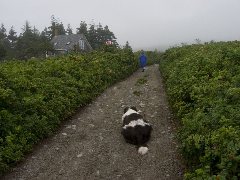 In my teens I came upon a trilogy set on a remote island off the coast of Maine. To begin with, I had a thing for islands and I loved the ocean. But even more, the heroine was a young woman very like me, smart, stubborn, impulsive and ready to throw my heart into anything that caught my fancy. And because I was so like Joanna, I felt like I was there, living her life, falling in love with the exciting stranger, even when I felt sorry for the steady young man who’d loved her since she was a girl. Years later, when I read the author’s autobiography, I discovered that island really existed, and I talked my dad into sailing out there one summer to see it in person. Most of the full time residents had moved ashore long before, but the buildings still stood. We crept cautiously through the old clubhouse where Joanna had learned to dance and hiked down to the eastern end where her brother lived after he married. It was just as I’d imagined it years before when I read the books. In my teens I came upon a trilogy set on a remote island off the coast of Maine. To begin with, I had a thing for islands and I loved the ocean. But even more, the heroine was a young woman very like me, smart, stubborn, impulsive and ready to throw my heart into anything that caught my fancy. And because I was so like Joanna, I felt like I was there, living her life, falling in love with the exciting stranger, even when I felt sorry for the steady young man who’d loved her since she was a girl. Years later, when I read the author’s autobiography, I discovered that island really existed, and I talked my dad into sailing out there one summer to see it in person. Most of the full time residents had moved ashore long before, but the buildings still stood. We crept cautiously through the old clubhouse where Joanna had learned to dance and hiked down to the eastern end where her brother lived after he married. It was just as I’d imagined it years before when I read the books.
 Reading can be an adventure through time, too. Recently Starz brought Dianna Gabaldon’s Outlander to the screen, but more than twenty years ago, I traveled back through those stones with Claire and fell in love with Jamie Fraser. I rode horses and visited castles. I roughed it with a band of Scottish border rascals and loved every minute. In the end, I ached for the lost identity of Scotland when the triumphant British crushed the clans at Culloden. Even though I’d known that bit of history before I read the books, Gabaldon made it come alive for me in a whole new way. Reading can be an adventure through time, too. Recently Starz brought Dianna Gabaldon’s Outlander to the screen, but more than twenty years ago, I traveled back through those stones with Claire and fell in love with Jamie Fraser. I rode horses and visited castles. I roughed it with a band of Scottish border rascals and loved every minute. In the end, I ached for the lost identity of Scotland when the triumphant British crushed the clans at Culloden. Even though I’d known that bit of history before I read the books, Gabaldon made it come alive for me in a whole new way.
 I’ve never been to Edisto Island in South Carolina, but C. Hope Clark made it come alive for me, from the tang of salt in the air, to the rush of waves on the beach, to the close-knit community. I’d like to go there for real some day, but in the meantime, her heroine, Callie Jean Morgan, shares her world with me, getting to the bottom of mysteries and debunking tales of a jinx. I’ve seen Sanibel Island through the eyes of Doc Ford, and experienced the nail biting tension of the fight against terrorism and international espionage with Jack Ryan Jr and Mitch Rapp, thanks to authors like Randy Wayne Wright, Tom Clancy and Vince Flynn. I’ve never been to Edisto Island in South Carolina, but C. Hope Clark made it come alive for me, from the tang of salt in the air, to the rush of waves on the beach, to the close-knit community. I’d like to go there for real some day, but in the meantime, her heroine, Callie Jean Morgan, shares her world with me, getting to the bottom of mysteries and debunking tales of a jinx. I’ve seen Sanibel Island through the eyes of Doc Ford, and experienced the nail biting tension of the fight against terrorism and international espionage with Jack Ryan Jr and Mitch Rapp, thanks to authors like Randy Wayne Wright, Tom Clancy and Vince Flynn.
Non-fiction can transport us just as magically to another time or place. You can go on safari in Africa, take a boat up the Amazon River, hike the Appalachian Trail, snorkel over the Great Barrier Reef in Australia, or visit another era. Sometimes you get to live those adventures first hand, but there just isn’t enough time to do it all in one person’s life. But you can enjoy all these adventures and more in a book. Not too long ago, my heart and soul were in the belly of a military helicopter and I was holding my breath while a brave female medic went down on a cable to save a wounded soldier and the pilot kept a steady hand on the controls in spite of weather, inhospitable terrain and enemy fire. Eric Sabiston was that pilot and he wrote about his real life experiences in Afghanistan in Dustoff 7-3.
 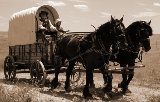 
Every once in awhile I read alarming statistics that discuss the declining number of adults who read for pleasure in today’s world. I feel sorry for those who’ve never found the excitement and joy of reading for fun. You don’t have to be wealthy. Anyone with a library card can find endless adventures, both imaginary and real to take them away from their world to another. The advent of e-readers makes it even easier to take your adventures with you wherever you might go. I always travel light, but tucked into a pocket, or my backpack is my Kindle with dozens of books, some fiction, some non-fiction. A little romance, a little suspense. Even my smart phone has the Kindle app on it, and I can escape into whatever adventure I’m on at the moment while waiting at the doctor’s office, in a traffic jam, in a long line at the grocery store, or sitting in the park.
If you haven’t read a book since you got out of school, I encourage you to give it a try. The adventure is there – you just have to reach out and grab hold.
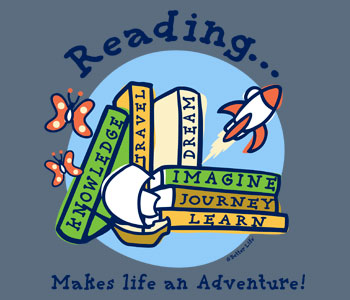
Tuesday, September 06 2016

When I was young and thought I was all grown up, a man named Harvey Hopkins, who was probably wiser then than I ever will be, told me that the day we stop learning and growing is the day we start dying. I was in my late twenties at the time. I’d fallen in love and married in haste, had three kids and been abandoned to bring them up on my own. My attitude was, “been there, done that” and what else is there to learn?
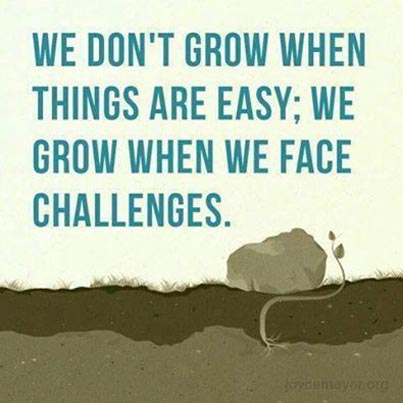
Well, raising three kids, eventually four, corrected that misguided idea. Among other things, I learned that raising a son has challenges you don’t anticipate for the simple reason that you are a woman and girls don’t think the way boys do. It was easier to guide my daughters to adulthood, sharing of my own hard learned lessons. Understanding my son took some serious thinking “Outside the box.” Kids don’t come with manuals regardless of gender. Every stage of their growing years brings new challenges. And guess what? My children are all adults now with children of their own and I’m still learning new things about parenting. That the job isn't over when they reach adulthood. Their triumphs will always be your pride, their joy will always bring you happiness and their pain will always be the hardest thing you'll ever have to bear.
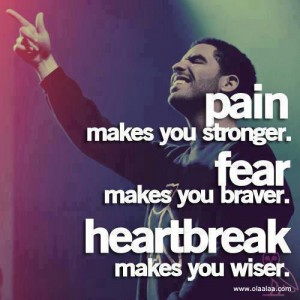 I also learned that I’m strong and I’m a survivor. I made mistakes and grew wiser. I weathered the storms life threw at me and grew stronger. I learned I’m not always right and it’s smart to listen to other points of view. I learned how to say I’m sorry and admit to my mistakes. I learned that my faith is not just something that happens on Sunday, but lives with me every moment of every day. And I learned to enjoy every moment, because all too quickly, those moments will pass. I also learned that I’m strong and I’m a survivor. I made mistakes and grew wiser. I weathered the storms life threw at me and grew stronger. I learned I’m not always right and it’s smart to listen to other points of view. I learned how to say I’m sorry and admit to my mistakes. I learned that my faith is not just something that happens on Sunday, but lives with me every moment of every day. And I learned to enjoy every moment, because all too quickly, those moments will pass.
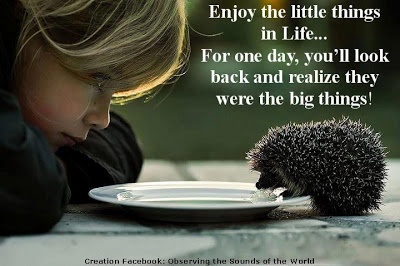
A few things I’d like to add to Harvey’s advice: One is a quote from George Bernard Shaw, “We don’t stop playing because we get old, we get old because we stop playing.” So get out there and play. Live and learn every day. If you don’t already have one, make a bucket list. Put everything you ever thought of doing on it. Even the things that don’t seem possible. It’s good to have dreams, and it’s good to dream big. Travel while you can. See things that fill you with wonder. Make new friends wherever you go, help others whenever you can – the more you give of yourself the more there is to give. Be optimistic. Be a Pollyanna. Keep your mind and your heart open and never stop growing.

Saturday, August 27 2016
 August 27 Blog Hop: Your assignment, if you choose to accept it -- is to discuss how we make our stories interesting with characters who have some kind of psychological, spiritual or physical wounds. The process of healing them becomes the character’s arc, the meat in our stories. What mental, physical or spiritual wounds or scars have you used in your stories? August 27 Blog Hop: Your assignment, if you choose to accept it -- is to discuss how we make our stories interesting with characters who have some kind of psychological, spiritual or physical wounds. The process of healing them becomes the character’s arc, the meat in our stories. What mental, physical or spiritual wounds or scars have you used in your stories?
The idea that men, women and children can triumph over adversity is uplifting and encouraging, so it’s little wonder that such stories make for a satisfying reading experience. Whether it’s a child growing up in poverty or with abuse and rising above it to succeed as a well-adjusted adult, a soldier who comes home from war wounded either in body or spirit and finds a way to put his loss behind him and move forward, or someone who has lost faith and is struggling to find it again – sitting in the figurative bleachers, we cheer them on, groan with each setback, and celebrate every success.
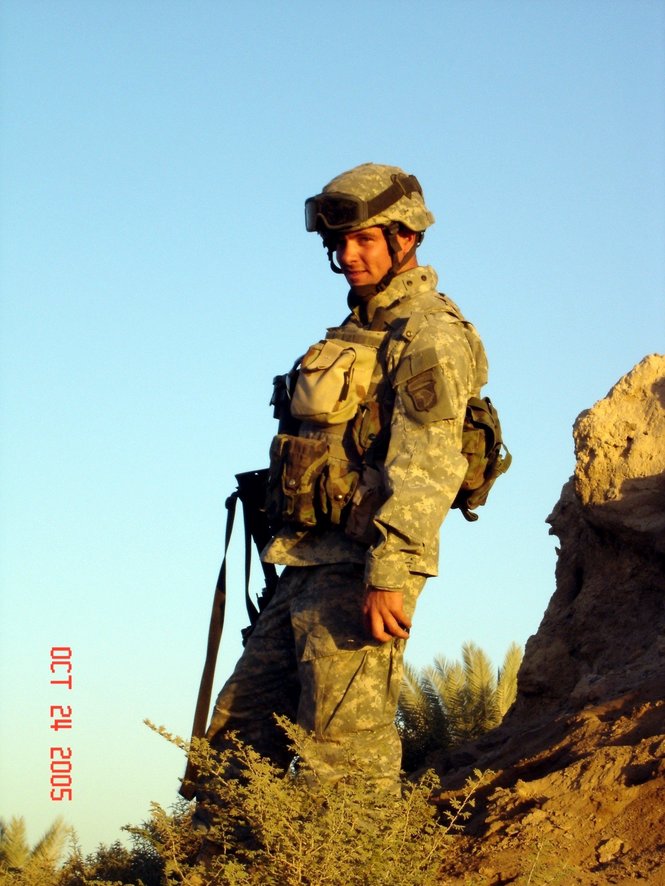 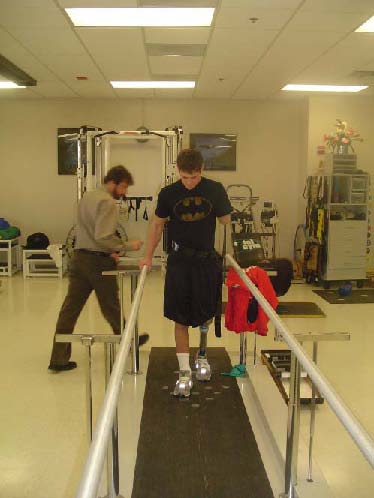 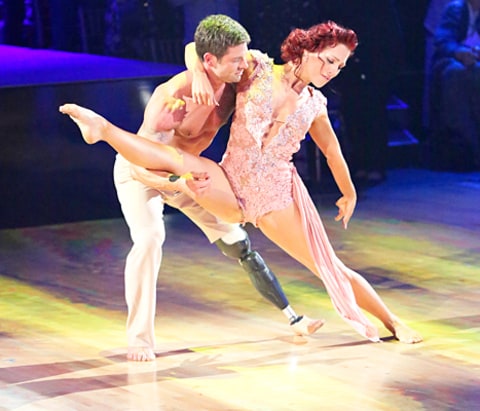
One season on Dancing With the Stars one contestant, Noah Galloway, a sergeant in the US Army, had lost both an arm and a leg in combat. His motto, Never Give Up, And he didn’t. Not on himself, on the dance floor or in life. Watching him win that Mirror Ball trophy over contestants far less challenged than he, was a triumph I will never forget. We did not see the struggles he had overcoming his injuries but there’s a book out now, Living With No Excuses, and that character arc IS the story.
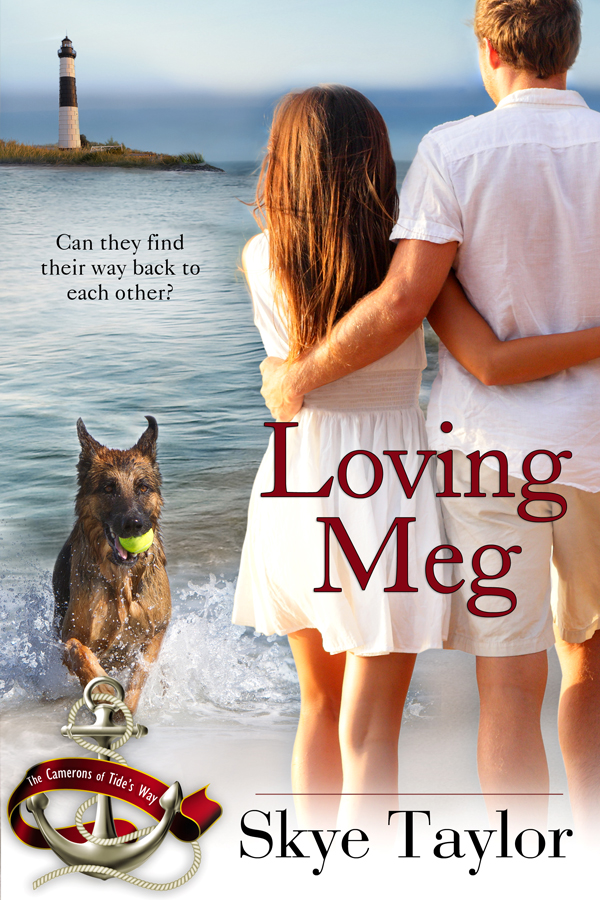 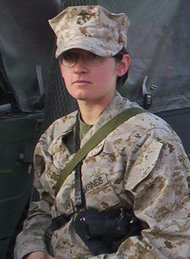
Two books in my contemporary romance series, The Camerons of Tide’s Way, are built around the story arc of the healing of one of my characters. In Loving Meg, Lieutenant Cameron is also a soldier, a woman who joined the Marines to get an education, never expecting to end up in a war zone. Unlike Noah Galloway, she was not physically injured. Her wounds are inside, the kind that can’t be seen, nor easily understood. The story begins when she returns home to a husband who is thankful that she’s home in one piece and back in his life and their sons’ lives. But Meg knows she is not the same woman who left a year earlier. She’s seen things, and done things that have changed her forever. She is plagued with guilt, regrets, painful losses, nightmares and the feeling she no longer fits into her old life. Ben slowly begins to realize his wife is struggling, but he has no idea how to help her. It takes patience on his part, the willingness to be whatever she needs him to be as she finds her own way back. And for Meg, it means facing the fact that she has problems and finding ways to work through them rather than trying to bury them. There is a happy ending, but it wasn’t always easy and there were scars even from the healing.
 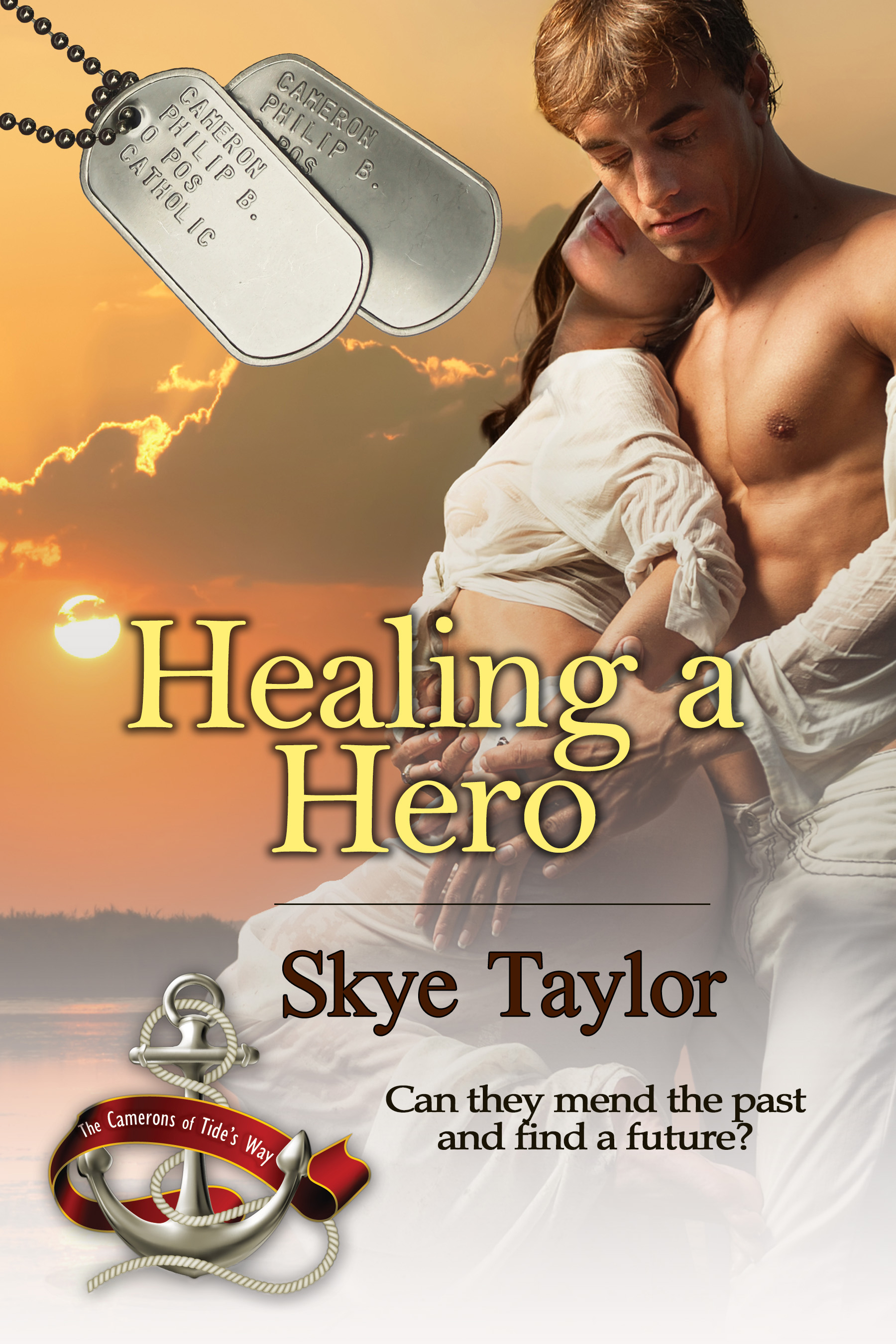
In Healing a Hero, Gunnery Sergeant Philip Cameron, nearly lost his life saving men from a bombed vehicle while being shot at. He spent weeks at Walter Reed getting put back together before he is sent to a new therapist closer to home. There, he is Elena Castillo’s most challenging patient ever. The Marine Corps is his life, and he’s not reconciled to accepting a medical discharge and life as a civilian. He’s willing to endure any amount of pain to get back to his men and his life. His usual easy-going temperament is constantly challenged by the frustrations of his limitations and the pace of his recovery. And everything is complicated by the fact that Philip and Elena had a whirlwind romance one summer while he was on a 30-day leave. They parted with every intention of being together again by Christmas, but then 9/11 happened and tore their worlds apart leaving both of them feeling betrayed and heartbroken. The struggle Philip now faces in the physical therapy gym gets tangled up in all the what-ifs from long ago, and Elena knows if she is successful in healing this wounded warrior, she will be sending him back into harm’s way and maybe have her heart broken all over again. Philip’s healing is both physical and emotional, and in the end he finds himself at peace with an ending he never realized he wanted. Meg’s wounds were psychological, what we commonly know as PTSD. Philip’s were physical. Both had to work through the healing process with acceptance, determination and patience.
  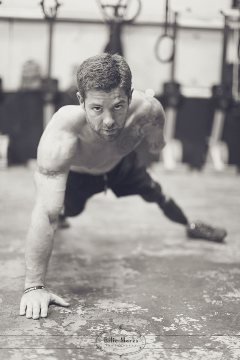 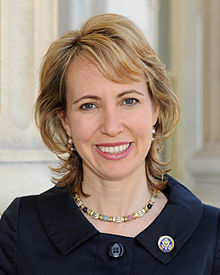
I love edge-of-your-seat books like those of Lee Child and Vince Flynn, but the most rewarding stories I read are about men and women who face adversity, wounds – both physical and psychological, and heartbreak with strength and courage. Their struggle to get back to where they started or to find a new normal is what makes the triumph satisfying and memorable. I’m impressed with successful people like Michael Phelps and Margaret Thatcher. Both worked hard and achieved remarkable things. But it is men and women like Noah Galloway or Gabrielle Giffords that I admire above all others, and it is stories like theirs, fact or fiction, that restore my faith in humanity and make the book worth reading.
If you like stories like these, visit these other authors and learn about the wounded heroes and heroines in their books.
Victoria Chatham http://victoriachatham.blogspot.ca
Dr. Bob Rich https://bobrich18.wordpress.com/2016/08/27/the-wounded-healer
Rachael Kosinski http://rachaelkosinski.weebly.com/
Anne Stenhouse http://annestenhousenovelist.wordpress.com/
Helena Fairfax http://www.helenafairfax.com
A.J. Maguire http://ajmaguire.wordpress.com/
Fiona McGier http://www.fionamcgier.com/
Rhobin Courtright http://www.rhobinleecourtright.com
Tuesday, August 16 2016
The Camerons of Tide’s Way - on Sale now through August 31st
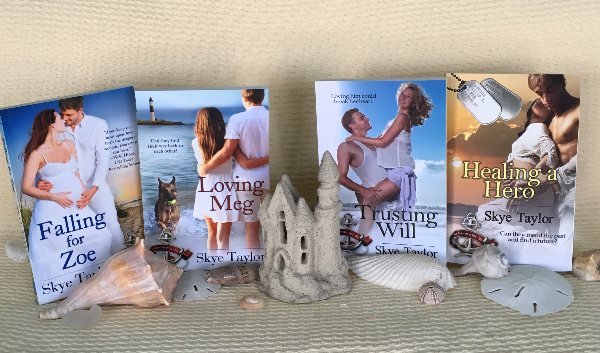
Book #1 – FALLING FOR ZOE - Jake Cameron didn’t try to win Zoe’s heart. He doesn’t want to risk his own heart either. They’re good friends. And maybe that’s enough. But when disaster strikes Jake has to confront his demons and take a chance on love. Just 99 cents until the end of the month at Amazon, B&N, Kobo,  iBooks and Google Play. iBooks and Google Play.
Book #2 – LOVING MEG - Marine Lt. Meg Cameron returns from a year in a war zone to face the toll war and regrets have taken on her confidence and her family. Ben’s unwavering love could be all she needs to mend her marriage if only she can let him into her world of guilt and pain to let the healing begin. $2.99 until August 31st at Amazon, B&N, Kobo, iBooks and Google Play.
Book #3 – TRUSTING WILL - Brianna Reagan is a war widow with no intention of falling for Will Cameron no matter how charming he is. He’s just another bigger-than-life hero who puts his life on the line every day. Loving him could break her heart all over again. $3.99 until August 31st at Amazon, B&N, Kobo, iBooks and Google Play.
Book #4 – HEALING A HERO - Philip Cameron is Elena’s most challenging patient ever. The Marine Corps is his life, and he’s not reconciled to anything but getting back to his men. He’s also the only wounded warrior she ever fell in love with. Is she strong enough to heal him and send him back even if it breaks her heart? JUST RELEASED at Amazon, B&N, Kobo, iBooks and Google Play.
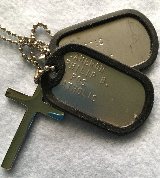 First ten readers who would like a free e-copy of HEALING A HERO in return for an honest review, contact me with your email address. First ten readers who would like a free e-copy of HEALING A HERO in return for an honest review, contact me with your email address.
Tuesday, August 09 2016
 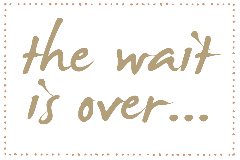
HEALING A HERO is on sale now . . .
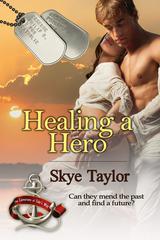 Amazon, Kobo, Google, Amazon, Kobo, Google,
An expert in her field, but new in her position at Camp Lejeune, Elena Castillo is shocked to discover her first patient is the man she fell in love with fourteen years ago and got her heart broken when war tore them apart after 9/11. Gunnery Sergeant Cameron is going to be the most challenging patient she has ever worked with in more ways than one. The Marine Corps has been his whole life, and he is a long way from being reconciled to either the debilitating injury or the possibility of a medical discharge and life as a civilian. He’s also the only wounded warrior she ever made the mistake of losing her heart to. Success as a physical therapist means sending him out into the world prepared to triumph without her, but is she strong enough to set Philip free even if it breaks her heart all over again?
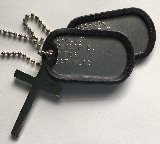
Philip Cameron is the oldest in a family of five - so of course, he's confident, a strong leader and a bit of a perfectionist. He excels at being in charge, but he's a good team player too, and he loves the Corps and his job. Except that now his world has been turned upside down. He's been seriously injured, he's no longer leading his men, he's no longer in control, there's a lot of gray in a world that used to be black and white. Then he discovers the therapist who is tasked with getting him back to where he wants to be is the woman he lost his heart to fourteen years ago. What is he supposed to do now?
Excerpt:
Philip spread his damaged fingers, then tried to make a fist, but there was no strength in it. Elena uncurled his fingers again and examined them, one at a time.
“How did you manage to get so busted up?”
“I lost the fight.” Like he’d lost her. Through no fault of his own. Ah, Elena, how did it happen? I thought we had something special going. Something worth waiting for.
Elena frowned at his answer. “The fight? This doesn’t look much like the kind of damage bombs and bullets, or even fist fights leave behind.” She glanced at the battered hand crisscrossed with the scars of multiple surgeries, then back to his face.
He shook his head and pressed his lips together. “It was a fight with an overturned MRAP. It was sinking in the muck, and it outweighed me.”
She slid her fingertips along the length of each battered digit, then asked him to curl his fingers up toward his palm and not let her straighten them. One at a time, she applied pressure to each fingertip. “What were you doing, wrestling with a—? What is an MRAP, anyway?”
“Trying to save my guys.” He winced. “It’s a Mine-Resistant, Ambush-Protected vehicle. They’ve got armor plating underneath to protect them from mines, but they’re top-heavy and they tip over easy.”
“Sorry,” she apologized.
He wasn’t sure if she was saying she was sorry he’d lost the fight, or was apologizing for the pain she was causing now.
She increased the pressure and the pain. “And did you? Save your guys, I mean?”
Regret lanced through him with an agony that rivaled what she was doing to his hand. “Most of them.”
Her eyes met his and widened as understanding hit. “But not all.” It was a statement, not a question.
He shook his head briefly and closed his eyes before she could notice the dampness that still came so swiftly and unavoidably whenever he remembered struggling to free the young corporal, getting his hand and shoulder crushed in the effort, and then not finding a pulse.
“I’M SO SORRY, Philip. I didn’t know.” None of the pages in his file had included that detail. Only that he’d been awarded a medal for heroism under fire. That he’d saved the lives of four Marines while sustaining wounds of his own. Wounds beyond just this crushed hand.
“You couldn’t know,” he said in a soft southern drawl laced with regret and sorrow. Without lifting his head, he glanced up at her, his eyebrows raised, his eyes suspiciously damp.
She’d been so wrapped up in her own feelings, she hadn’t once thought beyond the injustice of having to work with the man who had turned his back on her years ago to what he might be going through now. That look, filled with pain, regret, and loss cut straight to her heart.
“It wasn’t your fault,” she said, trying to banish her own callousness.
“That’s what everyone keeps telling me,” he muttered. The corner of his mouth tipped up in an effort of a smile. “So, what’s the prognosis?” He spread his fingers again.
His eyes had lost the glimmer of tears, and his tough guy façade was back in place.
Just as well. She couldn’t let herself care again. Keeping a healthy distance between them emotionally was the only way she’d get through the next few months.
Amazon, Kobo, Google,
In return for an honest review, I'll gift an e-book to the first ten readers who email me to ask: skye@Skye-writer.com

Tuesday, August 02 2016
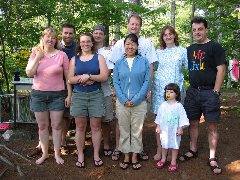 THEN ... THEN ...
Fifteen years ago – give or take, my kids and their significant others decided to spend a long weekend at the summer place my parents built back when I was eleven. When our short hiatus was over, my son-in-law declared it the best weekend ever and suggested we do it for a whole week the following year. It has since become a tradition. The rest of my children have married now, all have kids of their own and our time together is every year more precious than the last.
The camp is tiny – originally intended as a temporary structure until my dad could build a real summer cottage on the high side of the island with a view down the lake. But then he got his first New Hampshire real estate tax bill and decided the 14’ x 14’ building was all we needed. With bunks on one wall and a small table in the opposite corner, he added a narrow porch along the front and called it done. A few years later, when my mom got tired of cooking all our meals over a campfire he added a small L-shaped kitchen on the back corner. When there were only five of us it was big enough, but today – not so much, so on the other half of the island a whole city of tents pop up every year to accommodate the ever growing family.
 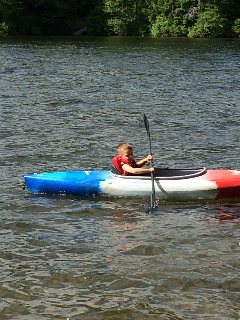 
The fleet grows as well. Since this is an island we have to have a rowboat to get ourselves and all our gear out there. In fact, we have three rowboats, a big canoe, three kayaks and a Sunfish, and sometimes my oldest son brings his powerboat. The family grows even faster. It began with my five kids, one daughter-in-law and one son-in-law. Somewhere along the line my sister-in-law and her kids and their kids started coming and I now have fifteen grandkids. And my sister, her daughter, my brother and his son and grandson and my dad are among the crowd.
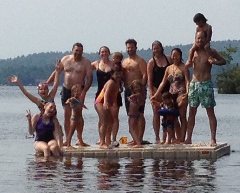  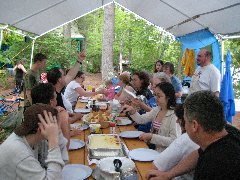
Every summer, I survey the bustle and joy going on around me and realize just how blessed I am. Unlike too many of my friends and acquaintances who live with dysfunctional families, siblings they don’t speak to, cousins they rarely see, kids who left the nest and never came back, I have it all. And everyone thoroughly enjoys being together for our annual week at the lake that we now call Mutt’s Nuts. We swim often, use all those boats in the fleet, play lots of cards, make puzzles, play a challenging game of croquet on an island with no grass and have a campfire every night. Every year we celebrate a holiday we don’t get to spend together. This year was New Years Eve, but other years we’ve had Christmas, Halloween, Easter, Valentine’s Day and more. We’ve celebrated birthdays, baby showers, wedding showers and retirements.
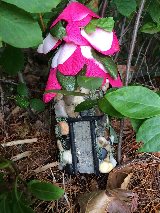 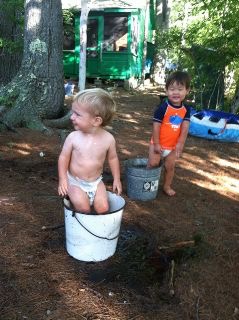 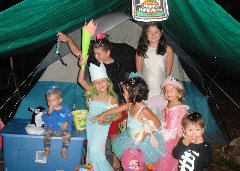
Cousins who all live in different states get to play together and make memories and friendships to last a lifetime. Adults kick back and spend time together while their offspring are busy making forts, hunting for fairy houses and exploring the island and the waters around it. Dinner is always great as each family puts on a feast on their night to cook. Sometimes we make ice cream. I make waffles at least one morning and my daughter treats us to crepes on another. And there are always s’mores around the campfire along with the most imaginative story-telling when the kids talk us into progressive stories and both kids and adults participate. Wild high-bush blueberries are everywhere so things like blueberry pie, cake, scones and pancakes are common, along with other home-made goodies that some of us enjoy making even on vacation.
  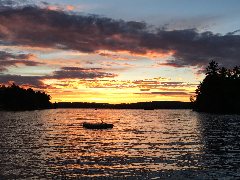
Then comes the final day. In a whirlwind, the dining canopy comes down. The boats all get hauled and stowed for the winter. Tents get folded up, and luggage carted ashore and piled into cars. One family at a time, the goodbyes are said and the place gets quieter and quieter until everything is so still I can hear even the faintest breeze rustling in the trees. And it’s just Duffy and me. Along with another year of memories and photos, and love.
And NOW... 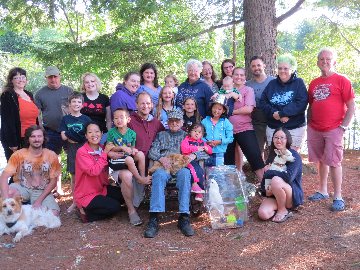 A few folk had to leave before we got the family photo taken, but this is most of the crew this year. And most years there are even more. A few folk had to leave before we got the family photo taken, but this is most of the crew this year. And most years there are even more.
Saturday, July 23 2016
When I was a kid, I read Heidi by Joanna Spyri and fell in love. I remember wishing with all my heart I could be Heidi and live on that mountain with Grandfather and Peter. And of all the great books I read as a kid, I still remember that story well. I read Mr. Poppins Penguins out loud to my dad while he was building a sailboat and I remember enjoying the story, but for the life of me, don’t remember any of it today. Neither do I recall much of the other stories I read during that part of my growing up. As a teenager, I read a trilogy by Elizabeth Ogilvie set before, during and after WWII on an island off the Maine coast: High Tide at Noon, Storm Tide and Ebbing Tide. And I loved those books and her hero Nils Sorenson as much as I’d loved Heidi. Long before Starz and Sam Heughan, I read Diana Gabaldon’s Outlander and fell in love again. Even though I read all of these books a long time ago, there isn’t much I don’t remember about them today.
 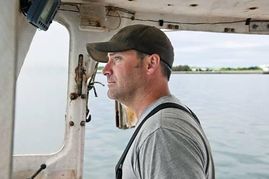 
So, what made these particular books memorable for me? I’ve read literally thousands of books, many of them great stories that I enjoyed tremendously while I was reading them and for at least some while after I closed the cover on the last page. I’ve read many books that were enjoyable to read, but that left little impression that lasted. From some of these books a character stands out here or there, like Jessie Best from Pamela Morsi’s Simple Jess. Or the young man who graduated from West Point just in time to get sent to Europe at the end of WWII in W.E.B.Griffin’s series Brotherhood of War. That soldier was not one of the main characters but he was unique and appeared throughout the series and he was my favorite character. A warrior who knew how to get the job done, but didn’t play the political game and had a flamboyant reputation. But those characters and stories don’t stay fresh in my memory like Heidi and Peter, Nils and Joanna Sorenson or Jamie Fraser. I love Lee Child's Jack Reacher and Vince Flynn's Mitch Rapp, but the plots all fade quickly. Same for so many others that fill my Kindle today.
 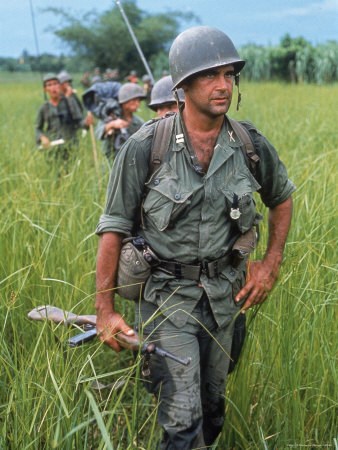 
Why? I think, it was a combination of compelling stories and characters I could relate to and fall in love with in settings that captured my imagination. I loved Jessie Best and he’s still one of my favorite characters, and the story compelling, but the setting, for me, wasn’t a place I ever wanted to be or see. That soldier in Griffin’s books was a complicated man I loved in the stories, but who knows, I might have disliked if I’d ever met him in person. I’d never been to Switzerland, but Spyri made that alp come alive. She created a girl I could relate to so much I wanted to be her and even in my childish heart, there was a bit of love for Peter. Ogilvie did the same with the Tide Trilogy. I had been to Maine, but her descriptions of this island off Maine’s coast, filled with a close-knit community was a place I wanted to go. Joanna was the main character, but my youthful heart fell in love with Nils Sorenson who loved Joanna the way I wanted to be loved when I grew up. Nils was the steady, reliable, caring man who was always there for Joanna no matter what she did, including breaking his heart at one point. Joanna was so much like me, perhaps that’s why I could relate to her so well. She was passionate and impulsive, and looking for adventure.
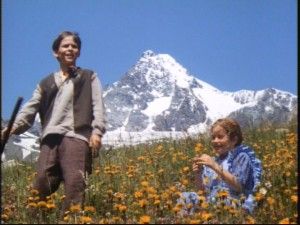  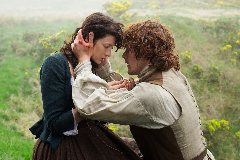
Then came Outlander. There are millions of women who’ve met and loved Jamie Fraser, first through the books and now, with the face of Sam Heughan – what’s not to love? I have lost interest in the latest of the Outlander saga because I feel like these 1000 page tomes would have been far better if they’d been only 300 pages long with less distraction from Jamie and Clair. I find myself flipping forward, skipping vast portions of the books filled with minutiae of things that just don’t interest me. But that first book and even the second, caught my imagination just as Heidi and the Tide Trilogy did, with a setting I could almost feel myself a part of, with characters who were complicated and far from perfect that I could relate to and fall in love with and a story that swept me away from my everyday life and held me captive until the last heart-healing moment.
In summary, what makes a book memorable for me is one that has it all: Great writing, captivating stories, real people, settings that sing with adventure and romance to touch the heart. They are books I have and will read again … and again even though I already know how they will end. And every time I will be whisked away to a place I want to be, fall in love all over again, and sigh with satisfaction and a little sadness when I reach the end and have to say goodbye.

What makes a book memorable for you? Leave a comment and share your thoughts. Then hop on over to see what makes a book memorable for this line-up of authors.

Judith Copek http://lynx-sis.blogspot.com/
Beverley Bateman http://beverleybateman.blogspot.ca/
Dr. Bob Rich http://wp.me/p3Xihq-I4
Victoria Chatham http://victoriachatham.blogspot.ca
Helena Fairfax http://helenafairfax.com/
Marci Baun http://www.marcibaun.com/blog/
Rachael Kosinski http://rachaelkosinski.weebly.com/
Connie Vines http://connievines.blogspot.com/
Rhobin Courtright http://www.rhobinleecourtright.com
Tuesday, July 05 2016

I used to live in Maine year round . . . until I spent two years in the Peace Corps! I thought I’d always be a New England gal. I grew up in Massachusetts and spent my winters skiing, coasting, ice skating and having snowball wars. I learned to drive in the snow and slippery roads didn’t bother me. I had plenty of warm clothes and while I’ll admit that I didn’t much enjoy delivering newspapers before the sun was up on frigid winter days, I never really thought about being cold the rest of the time.
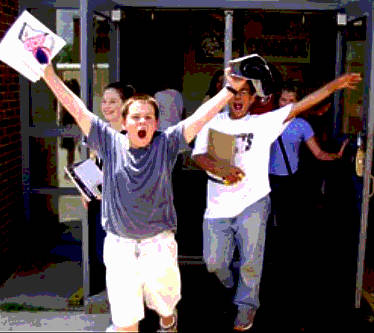 
Summers, however, were never long enough. Like all kids, the last day of school was a mini-emancipation. The whole summer stretched out before me – endless days of sun-drenched freedom to do and go what ever I felt like each morning. But what felt like a never-ending season in June came to a screeching halt far too quickly the day after Labor Day. As an adult with kids of my own the seasons began to have less importance. It was all about keeping up with their school and after school schedules, but I still looked forward to summer. And while most of my peers seemed to enjoy the cool nights of fall and looked forward to the changing colors of the foliage, I still mourned the end of summer.
Then, in my mid fifties, I made a bold choice. I applied to join the Peace Corps and got accepted. I leased my house, put my job on hold and ventured half the world away to experience life in a whole new way. I acquired a new Tongan family that welcomed me into their home, learned patience while coping with a very different work ethic, and adapted to the community lifestyle where things were often “borrowed” without asking because you weren’t using it, and someone else needed it. Peace Corps endowed me with a tiny dorm sized refrigerator but the family I lived with and most of their neighbors did not have refrigerators so I’d often find things that weren’t mine taking up shelf space. I lost three pair of flip flops that were “borrowed” -- one pair while I was at a wedding reception. The Tongan ladies clucked about me being barefoot but no one seemed to think it odd that someone would take my shoes while I was in the house admiring the wedding gifts.
 
But the biggest adjustment was the climate. I left Maine in February. I’d been coasting with my grandson just days before I flew out of Portland on my way to the South Pacific where it was still summer. I stepped out of the Air New Zealand jet onto stairs like the president uses when deplaning from Air Force One and the heat coming up off the tarmac even at dusk hit me like a blast from an oven. The thought going through my head at the time was, “What have I gotten myself into? Two years of this?” My first night I lay spread eagle on my bed trying to find comfort in the lazily turning ceiling fan that barely stirred the air. But before I knew it, I’d gotten used to that heat. I no longer noticed my clothes were always a little damp unless I happened to go into the bank, which was the only air-conditioned building on my island. And then I couldn’t wait to get back outside and get warm again. I’d been told in training that the local women used their umbrellas to keep the sun off, not the rain. We laughed, but it was true. It was 10-15 degrees cooler under the umbrella and getting soaked in a brief downpour felt good.
 
But mostly I enjoyed the endless days of sun and warmth. Even in the winter the temps at night never went below the mid 70s. I reveled in the sunshine warm on my head and shoulders as I walked to work and home again. And I especially loved the balmy evenings when the mother of the family I lived with and I would lay on woven mats on the veranda and talk in the soft darkness. Summer finally – FINALLY – lasted long enough.
Or almost. Two and a half years later I returned home, thankfully in May so my body had at least the brief Maine summer to get used to the change before winter set in. That first winter home felt endless. Snow started in November and didn’t quit until May. For several months it was dark when I got up in the morning and dark when I drove home from work. I missed the warmth and sun of Tonga more than I would ever have imagined. My second year, by March I was so depressed by the cold and dark, I flew to Florida for a week’s vacation, partly in Fort Pierce visiting a friend and partly in St Augustine. On my last morning there it was still dark as I waited for my taxi ride to the airport, but it was a soft, balmy, welcoming dark. Nothing like the hard edged dark of Maine in March. Like quarterbacking the Saturday game on Monday, I suddenly realized I had always loved summer best. Not so much for the endless carefree days of youth, but everything. The warmth, the sunshine, water warm enough to swim in, rain that felt like a blessing, breezes that brought the scent of flowers. Everything around me lush and green. Even the sudden deluges and the flash and rumble of a thunderstorm.
  
And that’s how I came to live in St Augustine, drawn by the climate and the history and the miles of beautiful beaches. I still miss the crunch of a ripe apple in the fall and the heady scent of lilacs in the spring, but enough to endure another winter. And I miss the very different ambiance of the Maine coast, the muttering growl of lobster boats as their captains haul their pots, the cries of gulls along the shore, lupine filling the fields in the late spring, and of course, a real Down East lobster – a lobster that was caught just a few hours before it hit the pot. So now I come here for a few weeks each summer. Unlike the snowbirds who live here and fly south in the winter, I live in the south and fly here for a taste of Maine each summer. Perhaps that makes me a sunbird. I don’t scramble over the rocks like I did when I was younger, but I appreciate the blessing of just being here with the tang of salt in the air and the abundant beauty that is Maine. In the Summer!
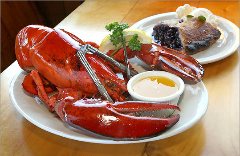 
Saturday, June 25 2016
June Round Robin Blog Hop: How emotionally involved are you in reading or writing some scenes?
As a reader, the answer to this question varies, but the books I found myself the most deeply involved in emotionally are the ones I remember years and years later. To be honest, I’ve read thousands of books in my lifetime and remember very few of them. They were fun while I was reading them and most of them left me satisfied, but they don’t stay with me. Ironically, while I don’t recall all of the story, one book that I will never forget was recommended to me by a friend. Set in England I think in the 1600s, the book, Forever Amber left me so disappointed I wanted to throw it at something - probably my friend if she'd been at hand. I so wanted things to work out for the heroine and there was a good man who loved her, but she kept making other choices, bad choices, unfixable choices until he finally left her. Through the whole book, scene after promising scene, I kept rooting for her to see the goodness in this one man who really loved her rather than chasing after something else that was never going to last. Right up to the end, she never learned, and never redeemed herself. I was totally emotionally involved in that even though the HEA never happened for her and I wished I’d never read the book in the first place. But I think that kind of emotional involvement and the author’s ability to make us feel that strongly is what makes a great book.
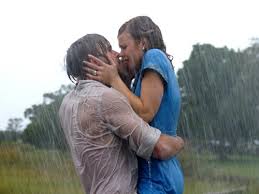 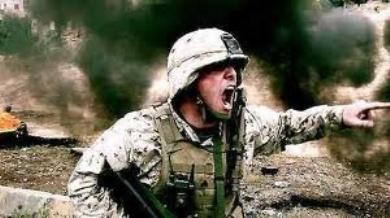
As a listening reader – now that so many great stories are available on audible, I enjoy them while I listen, but soon forget – perhaps it’s not having seen the written word – I don’t know. But one thing I have to say for audible is that you are there – I mean really THERE. If the hero or heroine is being stalked your hair is standing on end. If two lovers are getting it on, if it’s really well done, you can’t help feeling aroused. When something really sad happens you can’t stop the tears either. Recently, I was driving to a meeting in Jacksonville, a little over an hour from my home so I always leave plenty of time in case of traffic or other unforeseen holdups. On this trip I was listening to a suspense story about a covert, super dangerous mission. When I pulled into the library parking lot, I felt like I was in a rush. Like I was running late. I gathered up my stuff and hurried inside only to discover I was early, no need for the rush. I sat down and suddenly felt drained. I had been so emotionally invested in that story I was physically reacting as if it was me that was fighting for my life and desperate to get to safety before it was too late. Good writing and excellent reading on the part of the actor. It took me as long to recover from that adrenalin rush and the following let down as it would have had I experienced the action myself. The entire book was not that edge of the seat, but those scenes surely were.
 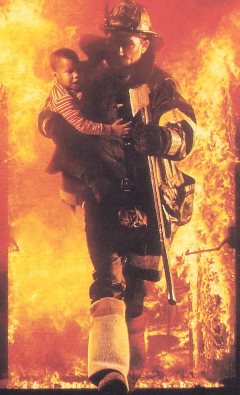 
As a writer, I am mostly always emotionally involved. I don’t write well if I’m not. As Steve Jobs said: "If you are working on something exciting that you really care about, you don't have to be pushed. The vision pulls you." This applies to writing, too. If I am emotionally invested and excited about what’s happening to my characters I don’t have to struggle to find the words – the words will race along at a furious place, and I’ll be breathlessly trying to keep up. Often I'll get caught up in activity or family stuff that takes me away from writing for a few days or even a week or more. When I come back, I open my manuscript, stare at the last thing I wrote and even with an outline or comments on post-its about where I’m supposed to go next, I find myself dragging the words out, desperate to get the action going, frustrated by my non-involvement. I always have to go back at least a chapter or more and just read what was happening before the interruption to get myself emotionally back into the story, back to feeling what my characters are feeling and being urged on by their needs and wants. So, for me as a writer, YES, I most definitely have to be emotionally involved in every scene – otherwise the book would never happen. There’s a downside to this kind of involvement though. When you get to the end you feel this incredible letdown. It’s like my BFF just moved to the other side of the planet and I miss my characters dreadfully. They’ve been in my head and heart for weeks, or months, and now they are gone. I wander around the house wondering what to do with myself. There’s always housework, and probably a maintenance project or two I’ve been putting off while chasing after the story, but they don’t have the emotional pull my story did, and I feel a little empty for awhile. And then I start a new book and get excited all over again.
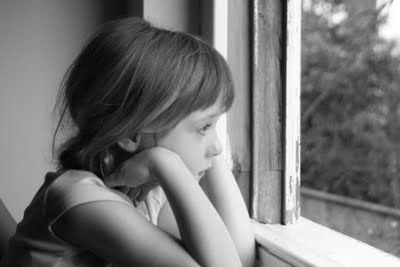 
Check out how these authors feel about emotional involvement:
Anne Stenhouse http://annestenhousenovelist.wordpress.com/
Marci Baun http://www.marcibaun.com/blog/
Heather Haven http://heatherhavenstories.com/blog/
Victoria Chatham http://victoriachatham.blogspot.ca
Dr. Bob Rich https://bobrich18.wordpress.com/2016/06/25/emotion-in-writing
Diane Bator http://dbator.blogspot.ca/
Beverley Bateman http://beverleybateman.blogspot.ca/
Rachael Kosinski http://rachaelkosinski.weebly.com/
Margaret Fieland http://margaretfieland.wordpress.com
Connie Vines http://connievines.blogspot.com/
Rhobin Courtright http://www.rhobinleecourtright.com
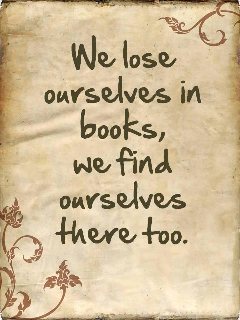
Tuesday, June 14 2016

The other day a friend of mine posted this meme on Facebook. Quite a few people echoed the sentiment, but one woman said she didn’t miss it at all. She made good points. In her words: “Girls were given too few career options. Women were expected to stay with abusive husbands rather than seek help. Lunch counters in the South served only white patrons. Segregated schools provided an education unequal to what white students received. We have made great progress, let's not go backwards.”
But I still miss the America I grew up in. I miss that children could be allowed to go out to play from breakfast until the streetlights came on at night without being hovered over by a parent. That we were allowed to fall down and learn from our mistakes, pick ourselves up and try again, instead of having a parent “fixing” it for us. When children grow up learning from their mistakes and taking responsibility for their choices, they grow into adults who take responsibility.
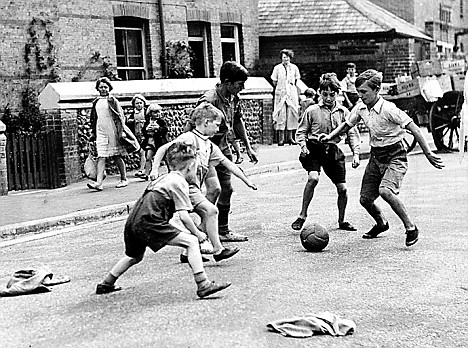 
I miss the America I grew up in because there was a very clear moral compass to our lives. Not everyone was Christian, but the same moral code seemed to be pretty much ingrained in our society. We had a reverence for life, our own and everyone else’s. I’m not claiming that there was no lawlessness, because certainly there was. Before my time the government decided that alcohol was an evil that could be legislated away and prohibition became the law of the land. Obviously this “law” didn’t work, rum running became a profession and crime families thrived. But somehow, we’ve forgotten this lesson and have come to believe that all we have to do is pass a law and the problem will go away.
But the lack of “civility” in our civil society, and the continuous efforts to remove any hint of morality (because it might feel too much like religion) have taken their toll on the America I grew up in. When I was a child, men and older boys had rifles carried in gun racks against the back window of their trucks. And the trucks were not locked. But how often did those totally unrestricted guns get used as they have been in recent years? As I came of age, sit-ins were popular forms of dissent, first for equal treatment for African Americans and desegregation, and later in protest of the Vietnam War. Those were true protests and eventually the voices of those who protested were heard. But today, far too often, what is hailed as a protest is a riot, with intent to hurt, maim, kill, burn and loot. And our leaders have come to call these riots protests and the behavior as acceptable. Not only that, we turned on the very people who put their lives on the line every day to maintain law and order. So far this year alone, 25 law enforcement officers have been deliberately killed on duty, targeted and ambushed just because they were officers of the law, not for anything they have done wrong. I am not defending police brutality, but rather the idea that if you are pissed off with the status quo as you see it, a legitimate way to address your anger is to kill other cops, firefighters and EMTs who are responding to calls.
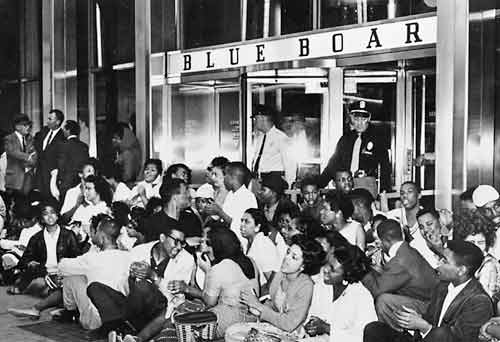 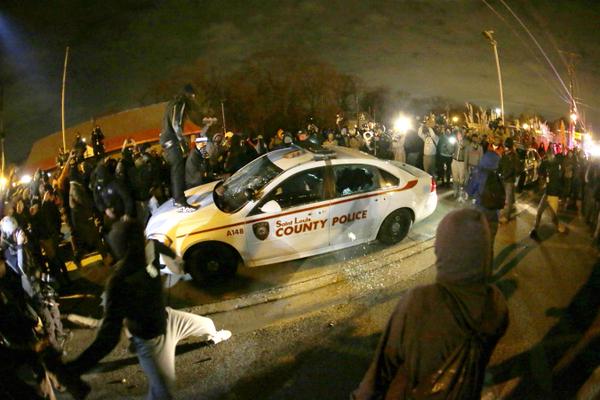
So, yes – I miss the America I grew up in. I miss that we could find a way to settle arguments and differences of opinion without anything more violent than a bloody nose. I miss that we have lost our respect for life – every life – and for each other regardless of our differences. We fill our children’s growing, learning brains with murder and mayhem in the form of violence on TV and video games that score the kills. We fail to teach our sons how women should be treated and expect the courts to be lenient when they make a “mistake” and rape an unconscious woman. Our schools, all the way up and through college must be “safe” places where no student must ever hear or see something that they find uncomfortable, and when they get out into the world they haven’t learned how to accept others who are different than they are with tolerance.
 
I am proud to be an American. I am proud to represent what America has historically stood for and I am proud to be part of some of the best things that America still is. But I am ashamed of what American society has become. And I fear that the pendulum will not begin to swing the other way until we accept the fact that a moral underpinning is absolutely required for a civil society to exist. The United States is the most philanthropic country in the world and yet – we still have not learned tolerance and acceptance and respect for life – all lives matter.

|